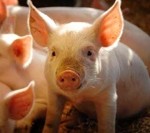
WTO sides with Canada – again
By Food in Canada staff
Business OperationsThe World Trade Organization’s Appellate Body confirms again that U.S. COOL discriminates against Canadian livestock in the U.S. marketplace
Calgary, Alta. – The World Trade Organization (WTO) Appellate Body has again sided with Canada in a dispute with the U.S. over how beef and pork products produced in Canada are labelled.
The WTO’s decision, which it announced on Friday, was on an appeal the U.S. made of a WTO ruling from last November.
At that time, the WTO ruled that the U.S. Country of Origin Labeling (COOL) violated international trading rules, discriminated against foreign livestock and was inconsistent with the U.S.’s WTO trade obligations.
The U.S. government implemented COOL on an interim basis in 2008; it officially came into force in March 2009.
Disrupting trade
Since then COOL has been criticized on both sides of the border – as well as in Mexico – for disrupting an industry that has come to depend on easy movement of live animals and processed meat products. It has been blamed for raising prices in the U.S. and damaging Canadian producers, says the WinnipegFreePress.com.
Canadian statistics show shipments of Canadian cattle to U.S. feedlots declined 49 per cent by 2009, a year after the regulations took effect. Exports of slaughter hogs declined 58 per cent.
In its ruling, the appeal panel wrote the U.S. does have the right to require that consumers be provided information on the source of their food.
However, reports the WinnipegFreePress.com, it decided the American regulations severely discriminate against Canadian and Mexican producers. It found only a small part of the data that non-U.S. producers were required to collect was passed on to consumers, while American producers did not have to keep such records.
The Canadian Pork Council (CPC) welcomed the news of this latest decision, saying it confirms and strengthens the most important part of the WTO Dispute Panel decision that the U.S. COOL legislation discriminates against Canadian livestock in the U.S. market.
The PigSite.com also reports that the Appellate Body was not prepared to find that U.S. consumer information objectives had not been met. CPC has never contested the consumer’s right to know, provided that this does not restrict trade.
Costs to producers in Canada
Since 2008, COOL has had a direct impact of at least $1.4 billion on Canadian hog exports to the U.S. This does not include any price suppression effects on hogs sold in Canada.
Canada’s cattlemen
The Canadian Cattlemen’s Association (CCA) president, Martin Unrau, says by upholding the part of the panel ruling that confirmed the discriminatory nature of COOL, the Appellate Body’s final decision has provided an important victory for Canadian cattle producers and he adds that the CCA is hopeful that the U.S. will amend the COOL legislation to eliminate the discrimination.
“This is the result that we have been seeking,” says Unrau. “Going forward, the CCA will be working with its U.S. counterparts to develop a solution that eliminates the discrimination of Canadian cattle in the U.S. market.”
Cost to producers in Canada
COOL has affected billions of dollars of commerce in cattle and beef products since it was implemented in 2008. At a cost of $25 to $40 per head, the current impact of COOL to Canadian producers is approximately $150 million per year.
Print this page
